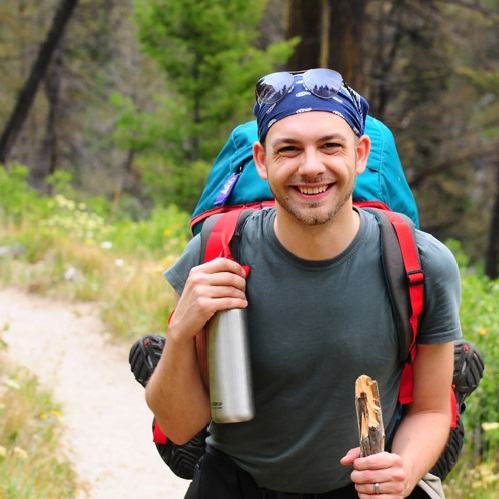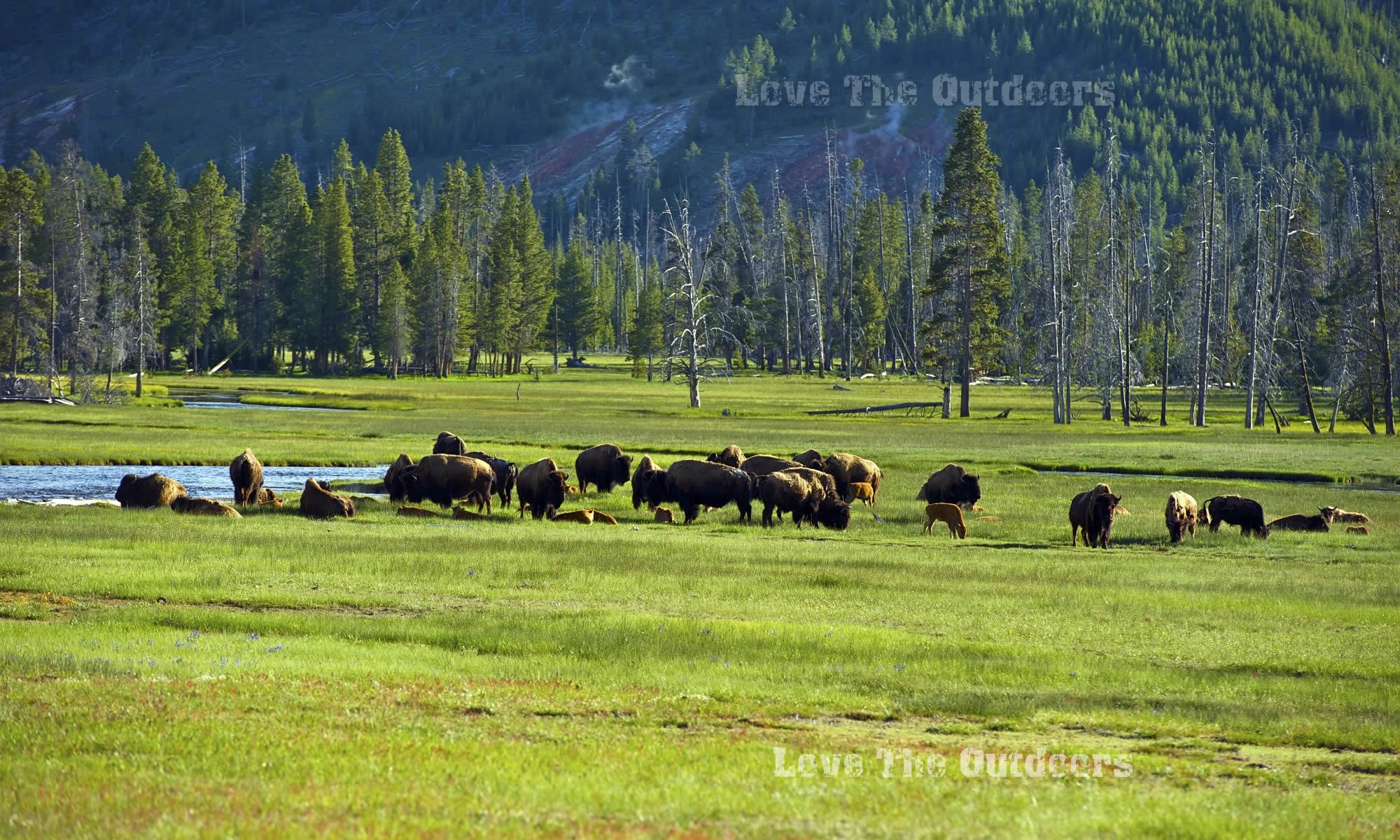When you think of that perfect backpacking trip, you likely envision unencumbered freedom as you trek nimbly on wooded trails, breathing fresh mountain air and feasting your eyes on the natural beauty around you. Too often, though, backpackers spend their time on the trail groaning beneath the weight of their heavy packs. They trudge along on clunky military-style boots that blister their feet, while sore backs and shoulders add to their pain. If the pain and discomfort of traditional backpacking make you see the trail as a painful obstacle between you and your campsite, you may be missing the point! Fortunately, there is a better way: ultralight backpacking.
In general, ultralight backpacking will bring your base pack weight (before food and water) to under 10 pounds. Lightweight backpackers are those with a base pack weight between 10 and 20 pounds. Either of these categories will result in a noticeably lighter, more enjoyable backpacking experience on the trail, with minimal sacrifice in comfort at the campsite. So, let’s get started!
The Attitude
More than a list of do’s and don’t’s, ultralight backpacking begins with a ruthlessly frugal attitude that says, “If I don’t need it, I won’t bring it.” Ultralight backpackers understand that ounces add up to pounds, so they look critically at every ounce in their packs. They refuse to accept traditional notions of “just in case” and “necessary gear” as undisputed truth. They take notes of what they really need on the trail, and reexamine everything else in terms of the ultralight attitude. This attitude can be phrased in a useful question: “Do I really need it?”
 Because ultralight backpacking is an attitude, not a gear list, there is a great deal of freedom to define what it means for you. As you strip away nonessentials and choose lighter gear, you may find that there are things that you really don’t want to do without. That’s just fine! It’s your back, and your trip. Just be sure to examine everything.
Because ultralight backpacking is an attitude, not a gear list, there is a great deal of freedom to define what it means for you. As you strip away nonessentials and choose lighter gear, you may find that there are things that you really don’t want to do without. That’s just fine! It’s your back, and your trip. Just be sure to examine everything.
The Big Three
After you’ve established a “lightweight” attitude, it’s time to start actually reducing weight! We’ll begin with “The Big Three”: your pack, sleeping bag, and tent.
- Backpack – For years, backpacking has been dominated by the framepack – a large pack with rigid stays to help transfer weight to the hips and off the shoulders. This type of construction, while very effective at helping you carry huge loads, actually adds significant weight to your pack. For the lightweight backpacker, framepacks are often unnecessary. Hikers with loads of less than 15 pounds are benefited little by a frame, and they can reduce weight by 1 or 2 pounds by going with a simpler, frameless pack. Some examples include Gossamer Gear Packs and GoLite Packs.
- Sleeping Bag – This may perhaps be the most expensive item of an ultralight camper’s gear, but improvements in sleeping bag technology mean that a little extra coin spent here may be well worth it. Down sleeping bags, once the costly but uncontested winner in lightweight warmth, are now being equaled by synthetic fibers, giving the backpacker more options than ever before. Being aware of the climate and seasons in your area will keep you from carrying more insulation than you’ll need. In some warmer areas, you may save some significant weight by bringing a hoodless sleeping bag, as opposed to a mummy-style bag. A reasonable goal would be to try for a sleeping bag that weighs around 2 pounds.
- Tent – By far the easiest place to reduce pack weight is shelter. A tent can easily be 5, 6, or 7 pounds, making it the heaviest item in your pack. Before you just shrug and haul it, though, there are a few ways to trim the excess off here. First, apply your lightweight attitude and take a look at the weather. Do you even need a tent? In warm weather with no chance of rain, you might just leave the tent at home, and enjoy a night under the stars as an added bonus. If you need a shelter, consider a tarp shelter like the Gossamer SilTwinn. For a more waterproof and windproof shelter, many modern tents can be found at around 3 pounds.
It’s the little things
Your weight reductions in the Big Three can take as much as 10 pounds off your back, but the little things can add up too! Watch out for excess in the following categories:
- Cookware – Always asking, “Do I really need it?”, take a glance through your camp kitchen. You might be able to eat right out of the pot you cooked in (hey, it’s camping, right?), and you could choose between that fork and spoon. Cookware tends to be heavy, so be critical here.
- Shoes – No, they’re not on your back, but heavy footwear can have you dragging your feet by the end of a long day on the trail. After significant weight reductions in your pack, many hikers find heavy hiking boots unnecessary, and enjoy the buoyant feeling of taking to the trail in running shoes or light trail shoes.
- Clothing – Again, know your area and your weather conditions. Pack only what you need for expected conditions, keeping safety in mind (mountain weather is notoriously unpredictable). Look for synthetic fabrics that provide powerful insulation for a fraction of the weight of cotton or wool. If you give up foolish illusions of smelling fresh as a daisy, you can also trim whole pounds off your load by removing extra changes of clothes.
Feel lighter yet?
With up to half your pack weight reduced with just these simple tips, take to the trail! Notice the extra bounce in your step and the ease with which you can traverse that tricky gully. With freedom to explore side trails and canyons, and the joy of undistracted hiking, more and more hikers are taking up ultralight backpacking. Now, you can join them and become one of the “enlightened few.”
This post was written by guest author Nathan Johnson.


Nice article. I agree, in order to go ultralight you need to adopt a mentality of “can I do without it?” Of course, you don’t want to overdo. it. Going to minimal can make your hiking trip miserable fast.
Great article, very informative. I tend to want to pack too much and regret it later. I will take your tips to heart on my next trip. I guess I am a little skiddish about sleeping without a tent. I do love to watch the stars and see the beauty of the night sky, but I haven’t ventured so far as to sleep without a tent. Maybe someday… Thanks for sharing your valuable information.